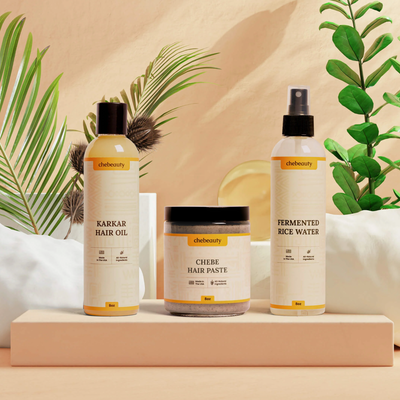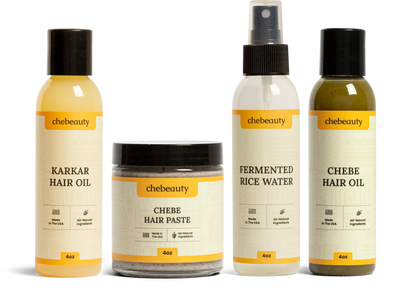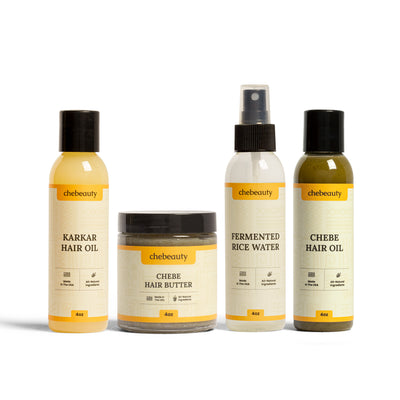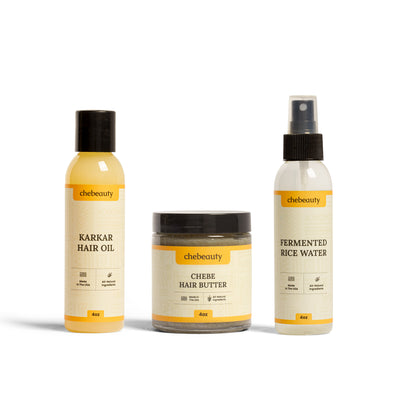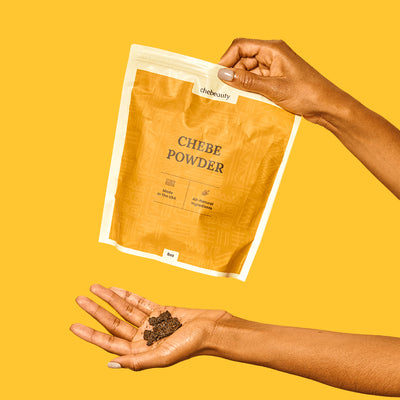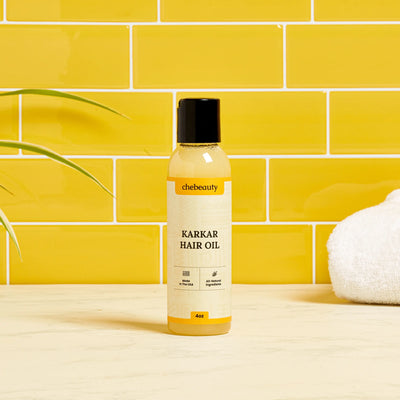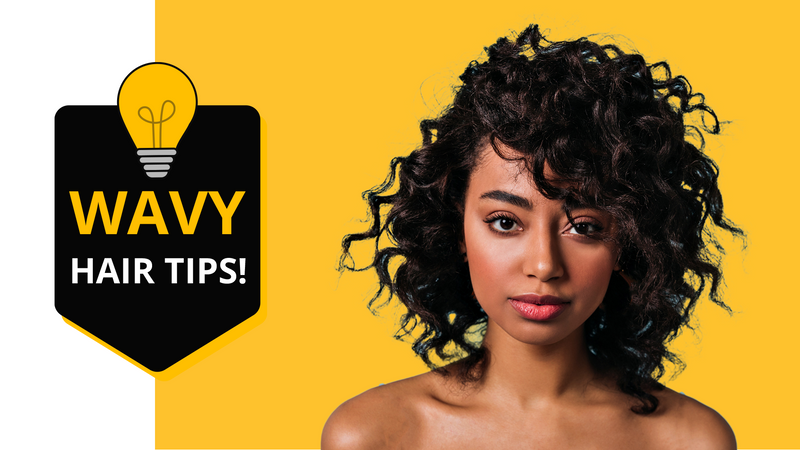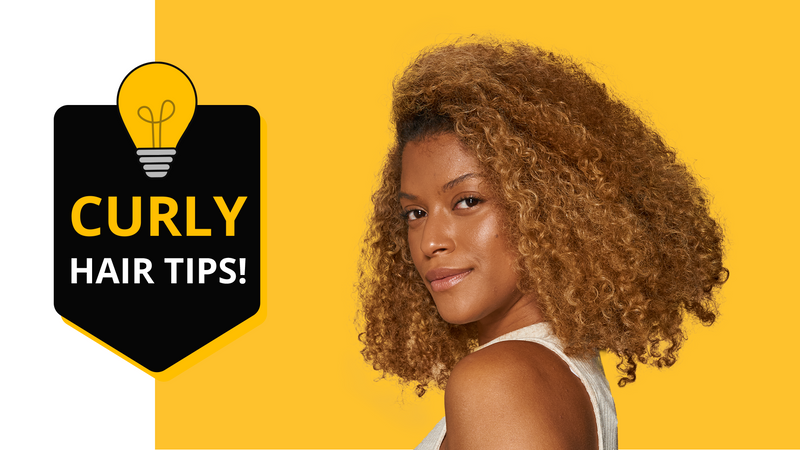Dry scalp is a common issue that many with Black people face, often leading to discomfort, irritation, and an overall decrease in hair health. The unique structure of Afro hair, with its tight curls and coils, makes it more prone to dryness, which can result in flakiness and itchiness if not properly cared for. Addressing dry scalp is crucial not only for the sake of this specific issue, but the overall health of your hair.
In this guide, we will explore the reasons behind why dry scalp occurs as well as best treatment options to keep your scalp nourished. Whether you’re dealing with occasional dryness or chronic scalp issues, our comprehensive guide offers natural remedies, protective styling tips, and professional treatment options tailored specifically for Afro hair.
Let’s get into it!
Understanding Common Causes of Dry Scalp in Afro Hair
As mentioned before, dry scalp in Afro hair can be a particularly challenging issue due to the unique structure and needs of this hair type. Black hair tends to be more prone to dryness because the natural oils produced by the scalp struggle to travel down the hair shaft, leading to a lack of moisture retention. Several factors can contribute to dry scalp in Afro hair that you need to be aware of before you start experimenting with hair treatments:
Common Causes of Dry Scalp in Afro Hair
Dry scalp in Afro hair can be attributed to a variety of factors, each contributing to the lack of moisture and overall scalp health:
Hair Structure: The tight curls and coils of Afro hair make it difficult for natural oils to evenly distribute. This uneven distribution results in dryness of the scalp, which can eventually extend to the hair strands.
Environmental Factors: Harsh weather conditions, such as cold winters or dry, hot climates, can strip moisture from the scalp and hair, leaving them with little protection. The dry air in winter or the intense heat in summer can exacerbate moisture loss, making it difficult for the scalp to retain hydration.
Improper Hair Care Practices: Frequent use of harsh shampoos, over-washing, or inadequate moisturizing routines can exacerbate dryness. Shampoos containing sulfates and alcohol can strip the scalp of its natural oils, leading to dryness and irritation. Over-washing can remove the scalp’s essential oils, while failing to properly moisturize after washing can leave the scalp and hair dry and brittle.
Product Buildup: Heavy use of styling products can lead to buildup on the scalp. This buildup can block pores, preventing natural oils from nourishing the scalp and leading to dryness and irritation. The accumulation of product residue can also create a barrier that hinders moisture absorption, worsening scalp dryness.
Heat Styling: Frequent use of heat styling tools such as blow dryers, flat irons, and curling irons can dry out the scalp and hair. The high temperatures from these tools can strip moisture from the hair and scalp, leading to dehydration and increased brittleness. Regular heat styling without adequate heat protection can cause long-term damage to the scalp and hair.
Diet and Hydration: Poor diet and inadequate water intake can affect the scalp's health, leading to dryness and a reduced ability to retain moisture. A diet lacking in essential nutrients, such as omega-3 fatty acids, vitamins, and minerals, can contribute to scalp dryness. Staying well-hydrated and consuming a balanced diet rich in nutrients is crucial for maintaining scalp and hair health.
Chemical Treatments: Frequent use of chemical relaxers, dyes, and other treatments can damage the scalp and hair, contributing to dryness and irritation. These chemical processes can strip the scalp of its natural oils, weaken hair strands, and cause inflammation. Limiting the use of chemical treatments and ensuring proper aftercare can help mitigate their drying effects.
Symptoms of Dry Scalp
Now that we’ve covered what causes dry scalp, let’s look at the symptoms that make is obvious that this is the issue you have to pay attention to. Here are the most common symptoms to watch our for if you suspect you have dry scalp issues:
Itchiness: Persistent itching is one of the most noticeable signs of a dry scalp. This itching is often due to the skin's dryness and irritation, which can be made worse by scratching. Continuous scratching can lead to further irritation and even small wounds on the scalp, making the condition worse.
Flakiness: Flakiness, characterized by small, white flakes on the scalp and hair, is a common symptom of dry scalp. These flakes are often mistaken for dandruff, but they are usually smaller and whiter in color.
Dull Hair: When the scalp is dry, it struggles to produce and distribute natural oils along the hair shaft. This lack of natural lubrication results in hair that appears dull and lifeless. Without sufficient moisture, the hair loses its natural shine and vitality, making it look unhealthy and lackluster.
Brittleness: A dry scalp can lead to brittle hair that is more prone to breakage and split ends. When the scalp lacks moisture, the hair strands themselves become dry and weak. This makes them less flexible and more susceptible to damage from everyday activities like brushing, styling, and environmental exposure.
Natural Remedies for Dry Scalp
Benefits of Using Natural Ingredients
While hair treatments full of chemicals can give you temporary results, Incorporating natural ingredients into your hair care routine offers numerous long-term benefits particularly for not only treating a specific issues like dry scalp but hair issues as a whole:
Gentle on the Scalp: Natural ingredients are generally free from harsh chemicals and synthetic additives, reducing the risk of irritation and allergic reactions. This gentleness makes them suitable for sensitive scalps prone to dryness regardless of where you are on the hair texture spectrum.
Nutrient-Rich: Natural ingredients are packed with vitamins, minerals, and antioxidants that nourish the scalp and hair. These nutrients help to strengthen hair, promote growth, and improve overall scalp health - as well as the quality of your hair.
Moisturizing Properties: Many natural ingredients, such as coconut oil and aloe vera, have excellent moisturizing capabilities. They help to retain moisture in the scalp and hair, preventing dryness and flakiness.
Anti-Inflammatory and Healing: Ingredients like aloe vera and tea tree oil possess anti-inflammatory and healing properties, soothing irritated scalps and promoting faster recovery from dryness and associated conditions.
Environmentally Friendly: Using natural ingredients is often more sustainable and environmentally friendly. They typically have a lower environmental impact compared to synthetic products, making them a better choice for eco-conscious individuals.
Top Natural Ingredient Products for Afro Scalp Dryness Treatment
Discover effective natural ingredient products that nourish and hydrate Afro hair scalp:
Chebe Butter: Chebe Butter, enriched with Chebe Powder, is highly regarded for its moisturizing and strengthening properties. Originating from Chad, Chebe Powder is traditionally used to maintain hair health by preventing dryness and breakage, also helping boost hair growth. When formulated into Chebe Butter, it becomes a potent treatment for dry scalp, deeply nourishing the hair follicles and promoting overall scalp health. Regular use of Chebe Butter helps retain moisture, strengthen hair strands, and improve the resilience of Afro hair against environmental stressors.
Rice Water: Rice Water has gained popularity for its rich content of amino acids, vitamins, and minerals that are beneficial for hair and scalp health. It strengthens hair roots, enhances scalp hydration, and improves the overall condition of Afro hair. The nutrients in Rice Water help to fortify the scalp's natural barrier, reducing dryness and promoting healthy hair growth. Incorporating Rice Water into your hair care routine can lead to softer, more manageable hair with improved elasticity and shine.
Karkar Oil: Another product originating from Chad, Karkar Oil is a prized natural ingredient known for its deep moisturizing properties. It penetrates deeply into the scalp and hair shafts, providing intense hydration and forming a protective barrier against dryness. Rich in essential fatty acids and antioxidants, Karkar Oil nourishes the scalp, strengthens hair follicles, and promotes healthier hair growth. Regular application of Karkar Oil can help alleviate scalp dryness, reduce flakiness, and restore moisture balance to Afro hair.
Shea Butter: Shea Butter is celebrated for its hydrating properties, making it an excellent choice for moisturizing and soothing the scalp. It effectively seals moisture into the hair and scalp, providing long-lasting hydration and improving overall hair elasticity. Shea Butter also contains vitamins A and E, which nourish the scalp and support healthy hair growth. Its anti-inflammatory properties help to soothe scalp irritation and reduce itchiness, making it a versatile ingredient for managing dry scalp in Afro hair.
Argan Oil: Argan Oil, derived from the kernels of the argan tree native to Morocco, is rich in antioxidants, essential fatty acids, and vitamins that benefit both the scalp and hair. It nourishes and moisturizes the scalp, helping to restore natural shine and vitality to Afro hair. Argan Oil also has anti-inflammatory properties that can soothe scalp irritation and reduce dryness. Regular use of Argan Oil helps to strengthen hair strands, prevent breakage, and improve overall scalp health, making it an essential natural ingredient for dry scalp treatment.
Daily Hair Care Routine
Importance of a Consistent Hair Care Routine
Maintaining a consistent hair care routine is crucial for managing dry scalp and promoting overall hair health, especially for Afro hair. Consistency ensures that the scalp and hair receive regular nourishment and hydration, preventing the buildup of dryness and associated issues like flakiness and itchiness. A structured routine helps in maintaining the moisture balance, which is essential for the unique texture of Afro hair that tends to lose moisture quickly.
Regular cleansing with gentle shampoos keeps the scalp clean without stripping it of natural oils, while consistent conditioning and moisturizing help to lock in hydration. Additionally, routine scalp massages with natural oils stimulate blood circulation, promoting healthier hair growth and a more resilient scalp. By adhering to a consistent hair care regimen, you can effectively manage dryness, enhance the natural beauty of your hair, and ensure long-term scalp and hair health.
Tips for Treating Dry Scalp
Scalp Massages: Regular scalp massages with natural oils, such as coconut or Karkar oil, stimulate blood circulation and enhance oil absorption, promoting a healthier scalp environment and reducing dryness.
Avoid Heat Styling: Limiting the use of heat styling tools and opting for air drying or using low-heat settings can prevent further moisture loss from your scalp and hair. This helps to maintain the natural oils that keep your scalp hydrated.
Wash with Lukewarm Water: Using lukewarm water instead of hot when washing your hair can prevent stripping away natural oils. Hot water only intensifies the dryness, so maintaining a moderate temperature is beneficial for scalp health.
Protect from Environmental Elements: Wearing scarves can protect your hair and scalp from harsh environmental elements such as wind, sun, and cold weather, which can contribute to dryness and irritation.
Balanced Diet and Hydration: A diet rich in omega-3 fatty acids, vitamins A, E, and C, along with staying well-hydrated, significantly impacts scalp health. Proper nutrition supports overall hair wellness and moisture retention.
Manage Stress Levels: Being mindful of stress levels is crucial, as stress can exacerbate scalp issues. Practicing relaxation techniques and maintaining a healthy lifestyle can help reduce stress-related scalp problems.
Common Mistakes to Avoid When Taking Care of Dry Scalp
Over-washing Hair: Washing your hair too frequently can strip the scalp of its natural oils, leading to increased dryness and irritation. Afro hair, in particular, relies on these natural oils to stay moisturized. Over-washing disrupts the scalp’s oil balance, removing the sebum that protects and hydrates both the scalp and hair. To maintain moisture, it is essential to limit washing to once a week or as needed, using a mild shampoo.
Using Harsh Products: Shampoos and conditioners containing harsh chemicals, such as sulfates and alcohol, can exacerbate dryness and damage the scalp's natural barrier. These ingredients can strip away essential oils, leaving the scalp dry and vulnerable to irritation. Instead, opt for products with natural, moisturizing ingredients that gently cleanse without depleting the scalp's natural oils.
Excessive Heat Styling: Applying excessive heat from styling tools such as blow dryers, flat irons, and curling irons without using adequate heat protection can further dehydrate the scalp and hair. High temperatures strip away moisture, making the scalp dry and the hair brittle. Using heat protectant sprays and limiting the use of heat styling tools can help preserve moisture and prevent damage.
Skipping Protective Styles: Not using protective styles or failing to sleep on satin or silk pillowcases can lead to friction and moisture loss. Protective styles, such as braids, twists, or buns, help shield the scalp and hair from environmental damage and reduce manipulation. Sleeping on satin or silk pillowcases minimizes friction, preventing hair breakage and moisture loss that cotton pillowcases can cause.
Ignoring Scalp Issues: Ignoring signs of scalp problems, such as persistent flakiness or itching, and not seeking appropriate treatments can allow the issue to escalate. Early intervention with targeted treatments, such as medicated shampoos or natural remedies, can prevent minor issues from developing into severe scalp conditions. Paying attention to your scalp's health and addressing problems promptly is crucial for maintaining a healthy scalp.
Conclusion
Proper care for a dry scalp, especially in Afro hair, involves understanding its unique needs and implementing a consistent and effective hair care routine. By recognizing the causes and symptoms of dry scalp, utilizing natural remedies like Chebe Powder, Rice Water, Karkar Oil, Shea Butter, and Argan Oil, and avoiding common mistakes, you can maintain a healthy, well-moisturized scalp. Incorporating additional tips, such as using a humidifier, scalp massages, and protecting your hair from environmental stressors, further enhances scalp health. Consistency and attention to detail in your hair care regimen will not only alleviate dryness but also promote the overall vitality and resilience of your hair. With the right approach and natural ingredients, you can nourish your roots and enjoy a healthy scalp and beautiful hair.















